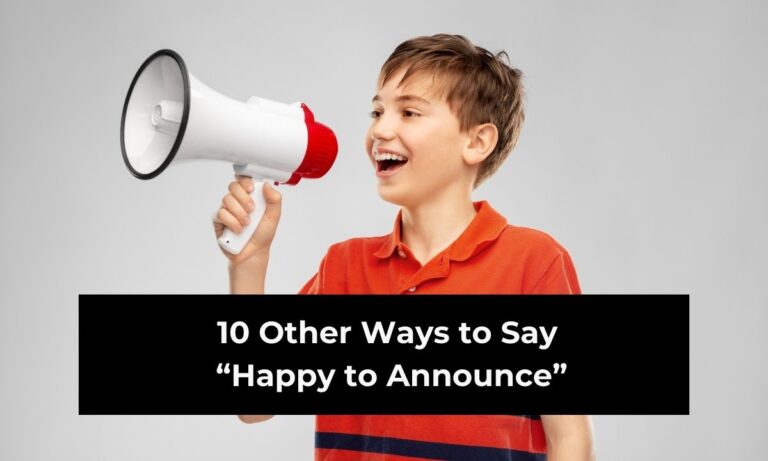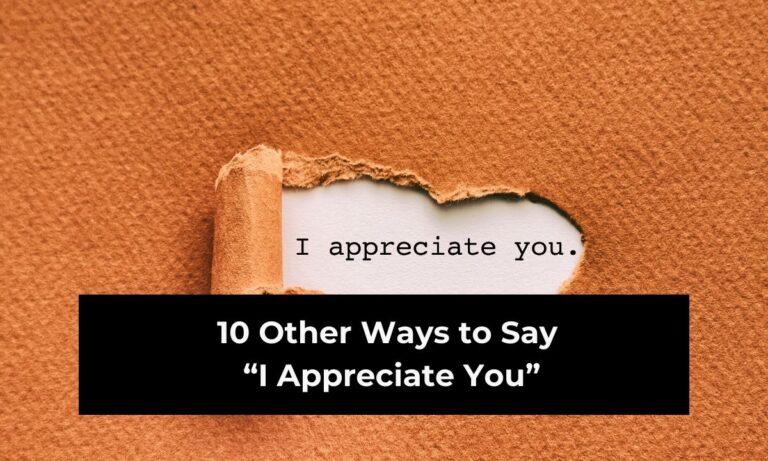When you’re in a professional setting—whether that’s a meeting, a conference, or even an email exchange—how you express agreement can say a lot about your communication skills. Simply saying “I agree with you” works fine in casual conversations, but in formal environments, you often need more polished and varied phrases to make your communication stand out.
Imagine sitting in a boardroom where ideas are flowing. If you keep repeating “I agree with you” after every statement, you risk sounding repetitive or even disengaged. On the other hand, having a range of professional expressions at your disposal allows you to emphasize your alignment with others while sounding thoughtful and articulate.
Using formal alternatives to “I agree with you” also helps you show respect, build stronger connections, and strengthen your presence in discussions. These phrases can demonstrate that you’re not just agreeing passively but are actively supporting and validating what someone else is saying.
In this article, you’ll discover 10 polished alternatives to saying “I agree with you” that will help you navigate workplace discussions, academic debates, or any setting where professionalism is key. Each phrase is explained in detail, with tips on how to use it naturally in conversations, so you’ll never run out of effective ways to express agreement.

Let’s explore these alternatives together so that next time you’re in a meeting or writing a formal message, you’ll have the perfect words at your fingertips.
Must Read:
- Other Ways to Say “With That Being Said”
- Other Ways to Say “Please Advise”
- Other Ways to Say “Unfortunately in a Formal Email”
1. “I Completely Support That”
When you want to show strong agreement while emphasizing your backing, this phrase works beautifully. Saying “I completely support that” shows that you’re not just agreeing in words but also standing behind the idea with full commitment.
This expression works well in formal discussions where you want to make your endorsement clear. For instance, if a colleague presents a strategy you believe in, you could say:
“I completely support that approach because it aligns with our long-term goals.”
Breaking it down, this phrase does two things: it confirms your agreement and communicates your willingness to advocate for the idea. This makes it stronger than a simple “I agree” and more impactful in professional contexts.
You might use it in:
- Team meetings where collective decisions are being made
- Client presentations where you need to align with a partner’s vision
- Academic or research discussions to validate another scholar’s perspective
Using this phrase carefully adds weight to your words. It positions you as someone who not only agrees but also takes ownership of the idea. That makes it a powerful tool for collaboration and leadership.
2. “That’s Precisely My View”
This phrase reflects a refined way of saying “I think the same as you.” It’s especially effective in intellectual or analytical conversations where precision matters.
When you say “That’s precisely my view,” you are highlighting that your perspective matches the other person’s exactly. This creates a sense of alignment and shared understanding, which can be valuable in professional dialogue.
For example, in a business meeting, if someone suggests optimizing workflow by automating routine tasks, you could respond:
“That’s precisely my view. Automation will free up our time for more strategic projects.”
The strength of this phrase lies in the word precisely. It conveys exactness, showing that your agreement isn’t just general but specific and deliberate.
You might use it in contexts such as:
- Academic discussions, where detailed alignment matters
- Policy or strategy meetings, to stress shared perspectives
- Intellectual debates, where exact wording adds credibility
This phrase helps you sound thoughtful, intentional, and respectful. It’s a great alternative when you want to avoid sounding repetitive while showing genuine alignment.
3. “I Am in Full Agreement”
This formal phrase is an elevated version of “I agree.” It communicates strong consensus while keeping the tone professional and respectful.
Saying “I am in full agreement” works particularly well in structured conversations, such as meetings, negotiations, or written communications. For example:
“I am in full agreement with the proposal, as it addresses both our short-term challenges and long-term goals.”
Notice how this phrase doesn’t just stop at agreement. It creates space to add reasoning or elaboration, making your communication more impactful.
You can use this phrase in:
- Professional emails, especially when responding to managers or clients
- Legal or policy discussions, where formality is expected
- Negotiations, to emphasize alignment on a key issue
This expression communicates confidence and commitment. It suggests you have carefully considered the point and are ready to endorse it fully.
4. “That Resonates with Me”
This phrase is both professional and personable, making it ideal for contexts where you want to show empathy as well as agreement.
When you say “That resonates with me,” you’re acknowledging that the other person’s idea connects with your own beliefs or experiences. It shows that your agreement is not only logical but also meaningful.
For example, in a leadership workshop, if someone highlights the importance of valuing employees, you could respond:
“That resonates with me. I’ve seen firsthand how employee recognition boosts performance.”
This phrase is best used in:
- Leadership or coaching conversations
- Team discussions about culture or values
- Networking settings where building rapport is key
It combines formality with warmth, helping you validate others while also deepening professional connections.
5. “I Share the Same Perspective”
When you want to show alignment in thought and vision, this phrase is an excellent choice. It’s more formal than simply saying “I think the same” and works well in professional or academic environments.
For example, during a strategy discussion, you might say:
“I share the same perspective. Investing in digital marketing will indeed strengthen our outreach.”
This phrase highlights shared vision, which can be powerful in teamwork and collaboration. It communicates that you’re aligned not only in agreement but also in mindset.
Use this in situations such as:
- Strategic planning meetings
- Group projects or academic collaborations
- Client conversations where building trust is essential
By using this phrase, you make it clear that you’re on the same page and working toward a shared goal. It reinforces unity and builds stronger professional relationships.
6. “Your Point Is Well Taken”
This is a polished and professional way of acknowledging agreement. It not only expresses that you agree but also shows that you’ve thoughtfully considered the other person’s input.
For instance, in a team setting, you could say:
“Your point is well taken. Focusing on customer feedback will definitely improve our product.”
This phrase works especially well when you want to:
- Validate someone’s idea without sounding overly repetitive
- Keep discussions respectful and constructive
- Show that you’re listening carefully
The strength of this phrase is in its tone. It communicates respect and attentiveness, which are crucial in professional interactions. It’s particularly effective in formal meetings, debates, or even written correspondence.
7. “I See It the Same Way”
This phrase is conversational yet formal enough to fit in professional settings. It conveys that your perspective aligns with the other person’s, without sounding too rigid.
For example, in a discussion about project timelines, you might say:
“I see it the same way. Prioritizing the testing phase will help us avoid delays later.”
This works well in:
- Team collaborations where consensus matters
- Meetings where you want to keep the tone approachable
- Emails where you want to sound supportive without being too formal
The beauty of this phrase is its balance—it’s professional yet warm, clear yet adaptable. It communicates understanding and teamwork in a natural way.
8. “I Am on the Same Page”
This is a widely used professional phrase, and for good reason. It conveys alignment not only in thought but also in goals and direction.
For example, if your manager outlines the next steps for a project, you might say:
“I am on the same page regarding the deadlines and deliverables.”
This phrase works particularly well when:
- Clarifying shared objectives
- Confirming alignment in team discussions
- Responding to project instructions
It shows that you’re not only in agreement but also ready to move forward together. This makes it especially valuable in collaborative work environments.
9. “I Concur with That”
This is one of the most formal alternatives to “I agree with you.” The word concur carries authority and professionalism, making it well-suited for legal, academic, or executive contexts.
For example:
“I concur with that recommendation. It’s a logical next step for our organization.”
Situations where this phrase works best include:
- Legal or policy discussions
- Formal debates or academic papers
- Executive meetings where high-level decisions are made
It’s less commonly used in everyday conversations, which makes it stand out as a sophisticated choice. By using it sparingly, you can add a touch of elegance to your professional communication.
10. “That’s in Alignment with My Thinking”
This phrase emphasizes harmony and shared vision, making it especially useful in professional discussions that involve strategy or planning.
For example:
“That’s in alignment with my thinking. Strengthening our partnerships will open new opportunities.”
This phrase is useful in:
- Strategic planning sessions
- High-level business discussions
- Academic or research collaborations
It communicates not only agreement but also alignment in reasoning and objectives. This makes it a great choice when you want to highlight a shared direction with colleagues or stakeholders.
Conclusion
Learning different ways to say “I agree with you” formally can significantly elevate your communication skills. Instead of relying on a single phrase, you now have ten versatile alternatives that you can use in different professional contexts.
These phrases allow you to express agreement in ways that feel polished, confident, and respectful. Whether you’re in a meeting, writing an email, or participating in a debate, using expressions like “I completely support that” or “Your point is well taken” helps you stand out as someone who communicates with thoughtfulness and clarity.
By choosing the right phrase for the right situation, you not only avoid repetition but also strengthen your relationships and influence. Strong communication is a powerful tool, and mastering these alternatives ensures that your voice carries professionalism and impact.
Next time you find yourself nodding along in agreement, try using one of these polished alternatives—you’ll notice the difference it makes in how others perceive your input.
FAQs
1. Why should I use formal alternatives to “I agree with you”?
Because they make your communication more polished, professional, and versatile in different settings.
2. Which phrase is best for professional emails?
“I am in full agreement” or “Your point is well taken” work well in written communication.
3. Can I use these phrases in casual settings too?
Some, like “I see it the same way” or “I am on the same page,” work perfectly in both casual and professional contexts.
4. Is “I concur” too formal?
It depends on the setting. In legal, academic, or executive discussions, it’s appropriate. In casual talks, it may sound too stiff.
5. How can I avoid sounding repetitive when agreeing?
By rotating these alternatives, adding reasoning to your agreement, and tailoring your words to the situation.





